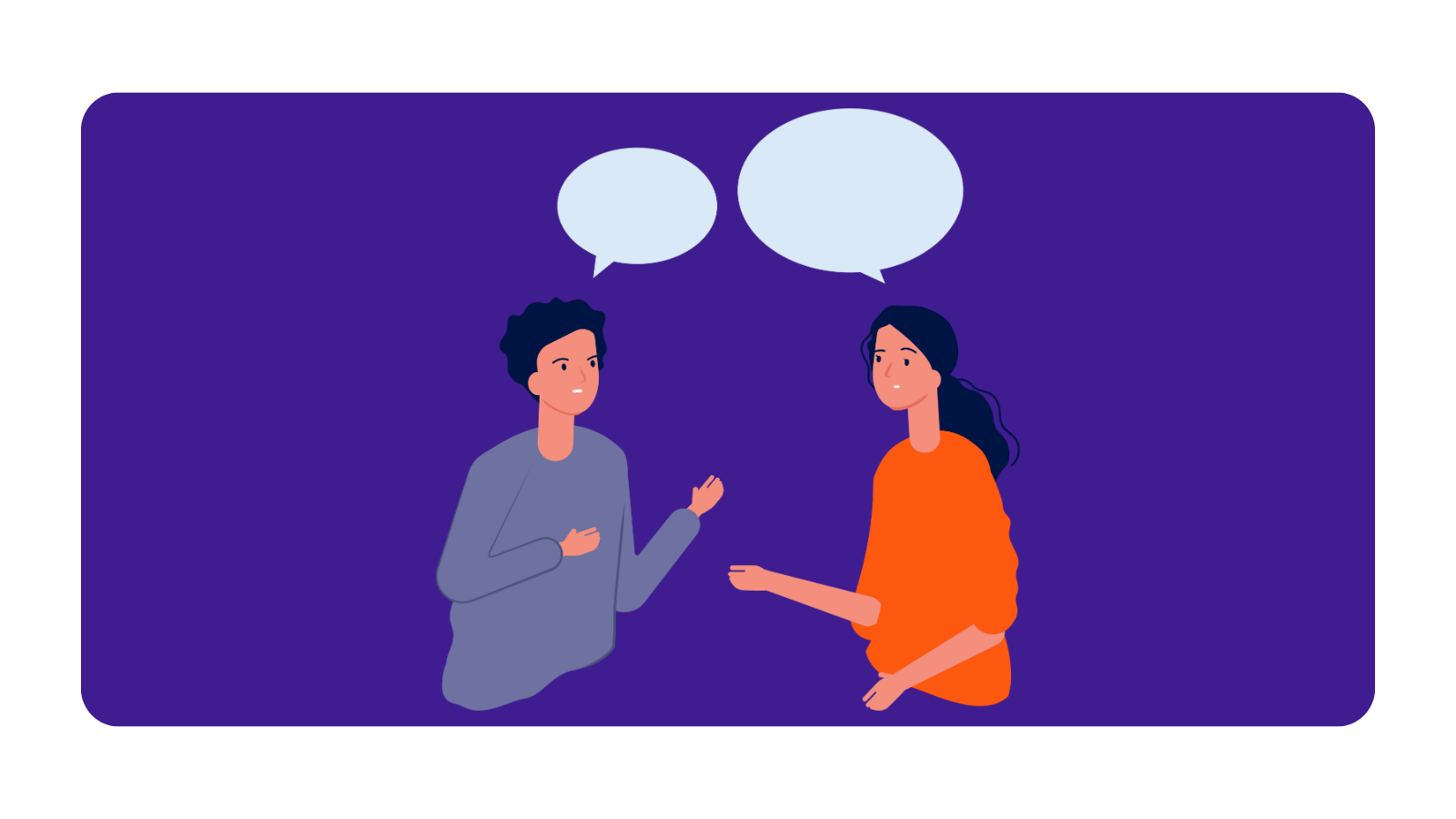One of the challenges of results day is thinking about how you are going to share your exam results with parents, family, friends, the list goes on. Oftentimes, getting great results will feel easier, but if you have friends with disappointing results, it can feel a bit complicated. On the other hand, if you are disappointed with your results, it may be difficult seeing friends getting good results.
But, with a little planning, you can make results day more manageable for yourself.

stem4’s top 5 tips for sharing exam results
1. Be mindful of how you speak to yourself
Find a comfortable and balanced way of thinking about your results to try and avoid hating yourself if you are disappointed—this will also help you share your news. Exams involve so many different factors, including some luck (like if the right questions came up for you!). So, it’s good to understand what worked and what didn’t, without letting extreme feelings take over. If anxiety does get the better of you, resources like stem4’s free Clear Fear app can help you perform better next time.
Clear Fear is an app developed for teenage mental health charity stem4 by Dr Nihara Krause, Consultant Clinical Psychologist, and uses the evidence-based treatment CBT to focus on learning to reduce the physical responses to threat by learning to breathe, relax and be mindful as well as changing thoughts and behaviours and releasing emotions.
2. Remember that people love you as you are
It’s all too easy to think that your parents and friends want you to be some perfect version of yourself, and one that gets amazing results. But they’ve known you for a long time, and know how hard exams are. Even if you get disappointing results, remember that they will still love the person you are.
3. Share your hopes and fears with someone else
It takes courage to tell someone before results day what you’re hoping for and what you are worried about. But if you can open up to someone, they will be there, able to support you, when you do get your results—they’ll be able to share both excitement and disappointment with you on the day.
4. Decide in advance how you will share your results
It is easy to broadcast news on social media, but you can’t know what impact it might have on your friends. So think about what might be the best way of sharing—whether that’s in person, via a messaging app, or in a family chat—so you can get and give support.
5. Whatever happens, celebrate
No matter what your results, you have worked hard and have taken major exams. That is an amazing achievement and, whatever your results, you deserve a celebration for doing your best through these difficult times. Go and enjoy the rest of the summer holidays!
How Do I Support a Friend Who Got Better or Worse Results Than I Did?
1. It’s okay to keep your results to yourself
If you are not happy sharing your results with your friends, you shouldn’t feel bad about keeping them to yourself. Give vague responses that your results were better than / not as good as expected, and let your friends know if you need some time.
2. Give yourself space
Delay talking to potentially insensitive friends until you feel you can provide a rehearsed response.
3. Avoid the ‘humblebrag’
Don’t have false modesty if you’ve done really well. Saying ‘I don’t know how I got all 9’s when I didn’t put in much effort’ or ‘I only did well because the exams were easy’ will only put down those who haven’t done well and make them feel worse.
4. Be mindful on social media
Think about the impact posting your results on social media might have on your friends who had a bad exam, and think carefully about the comments you make. As well, try not to let anger or jealousy spoil a friendship if your friends have done better than you. You might find it easier to take a step back from social media on results day.
5. Be there for an upset friend
If a friend hasn’t done so well, give them time to talk about how they feel, and listen. Try not to offer reassuring comments that neither of you quite believe, such as ‘It’s only an exam.’ Instead, ask if you can help with next steps. Brainstorm with them but don’t necessarily give advice.
6. Think about the person behind the results
Whatever their results, stay connected with your friend(s) and don’t fall into gossiping about who got what results. A lot can change very quickly after results day, so make an effort to keep in touch with your friends—they may need a friend, and so will you.
For more tips and support, check out our blog on how can I stop worrying about results day and how can I cope with Results Day.
Getting results can be overwhelming, and if you feel you are struggling, please give yourself the support that you deserve.
Whether you’d like someone to talk to or just some information and guidance, head to our Further Advice page for a list of helplines and resources that you may find useful. Please note we are UK based so the information is for UK users.
We also recommend talking to your GP / mental health professional, or calling 111 or 999 in an emergency if in the UK. Please contact relevant emergency numbers if abroad.


